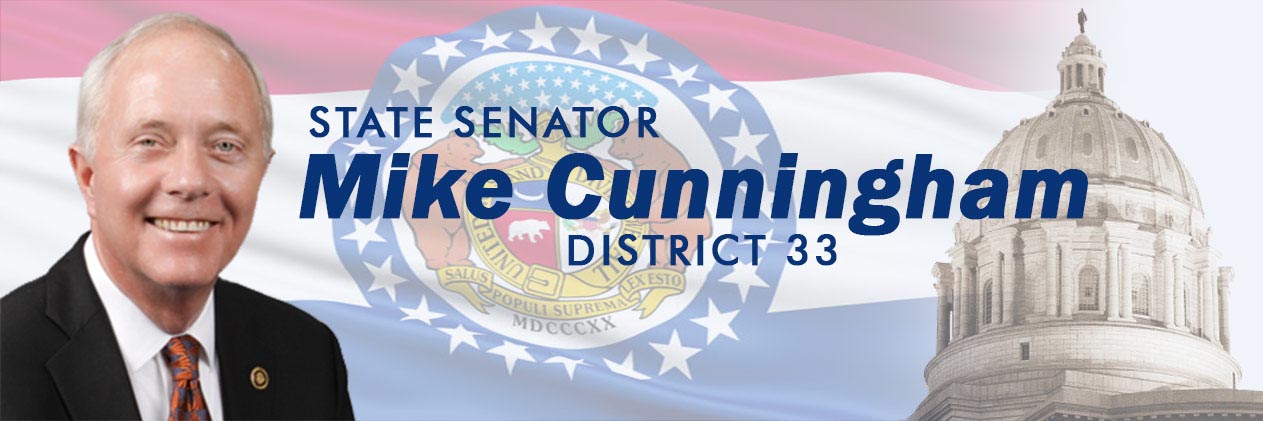
Legislative Column for Sept. 6, 2019
Like most Americans, I get frustrated when I answer a telephone call only to find a telemarketer on the line. It’s even worse when the caller is an obvious scammer. I’m especially annoyed by calls that appear to come from a local number, but turn out to be from someone who doesn’t know me and probably couldn’t find Missouri on a map.
Increasingly, these unwanted calls don’t even have a human on the phone. With robocalls, you answer and find yourself listening to a pre-recorded message or a computer-generated pitchman. These are the calls most likely to come from a “spoofed” phone number – one that seems to originate nearby, but clearly does not. By some estimates, 40 percent of spam phone calls involve spoofed caller IDs.
Recently, the top cellular and home phone companies reached an agreement with the attorneys general of all 50 states and the District of Columbia. Together, they promised to get a handle on robocalls, especially those that involve spoofed telephone numbers. The phone companies vowed to implement technology that can trace calls back to their origin, identify those that transmit a false caller ID or mask their true phone number and flag the call so that customers can choose to ignore it.
The new technology will place a “caller verified” tag on your cell phone screen when calls arrive from a legitimate source. Other technology marks calls from known spammers with a fraud warning so consumers can reject the call without ever listening to a pitch.
The attorneys general’s announcement was welcome news, but there’s a lot more work to be done. Most of the anti-spoofing measures announced are actually old news. Many of the major carriers began utilizing the new system months ago, and there is no formal deadline for others to do so. There’s also no penalty for failure. The agreement includes a promise to provide basic robocall protection free to consumers, but phone companies can still charge extra for more powerful tools.
With nearly 50 billion robocalls placed in the United States last year, it’s high time that phone companies begin addressing the problem. The attorneys general’s agreement is a start, but it’s our responsibility to be vigilant. Missourians have a well-deserved reputation for being skeptical, and I encourage everyone to adopt a “show-me” attitude whenever you receive an unsolicited phone call offering a product or service. If someone calls claiming to represent the IRS or a law enforcement agency and asks for money, you can safely hang up.
Unfortunately, there are times when no amount of diligence can prevent problems. Recently, there was a case when someone used a spoofed phone number to falsely report a shooting, sending law enforcement racing to the home of an unsuspecting victim. Fortunately, no one was harmed in that instance but the potential is grave. Such reckless behavior is chargeable as a felony but people still do it.
To combat the much more likely annoyance calls, the Missouri attorney general’s office maintains a No-Call list. Adding your phone number to this list should help reduce the number of unwanted telemarketing calls you receive. You can register online at ago.mo.gov/app/NoCallRegistration or by calling 1-866-289-9633.
If you’ve signed up for the Federal Trade Commission’s No-Call list (donotcall.gov), your number may already be included in the Missouri list, but it doesn’t hurt to double up. Registering for No-Call won’t eliminate all unwanted calls, but it will reduce them. Companies you have a current business relationship with, those you’ve expressly invited (by filling out a sweepstakes form, for example) and certain non-profits can still call.
Regardless of whether you sign up to either No-Call list, there are certain things telemarketers are never allowed to do. They can’t threaten, intimidate or use foul language. They can’t call before 8 a.m. or after 9 p.m. If you ask them to stop calling, they must do so. If you believe a telemarketer is breaking the law, you can file a complaint with the attorney general by calling 1-866-662-2551.
Unwelcome phone calls and high-tech attempts to scam us are part of modern life. I’m glad to see that states across America are partnering with phone companies to combat robocalls, but it’s still up to all of us to be watchful. Remember, you’re under no obligation to talk to anyone who calls unsolicited. And, if it sounds too good to be true, it probably is.
It is my great honor to represent the citizens of the 33rd Senatorial District. Although the Legislature has adjourned for 2019, I remain your senator throughout the year. If there’s anything that I can do to assist you, please feel free to contact my Capitol office at (573) 751-1882.
